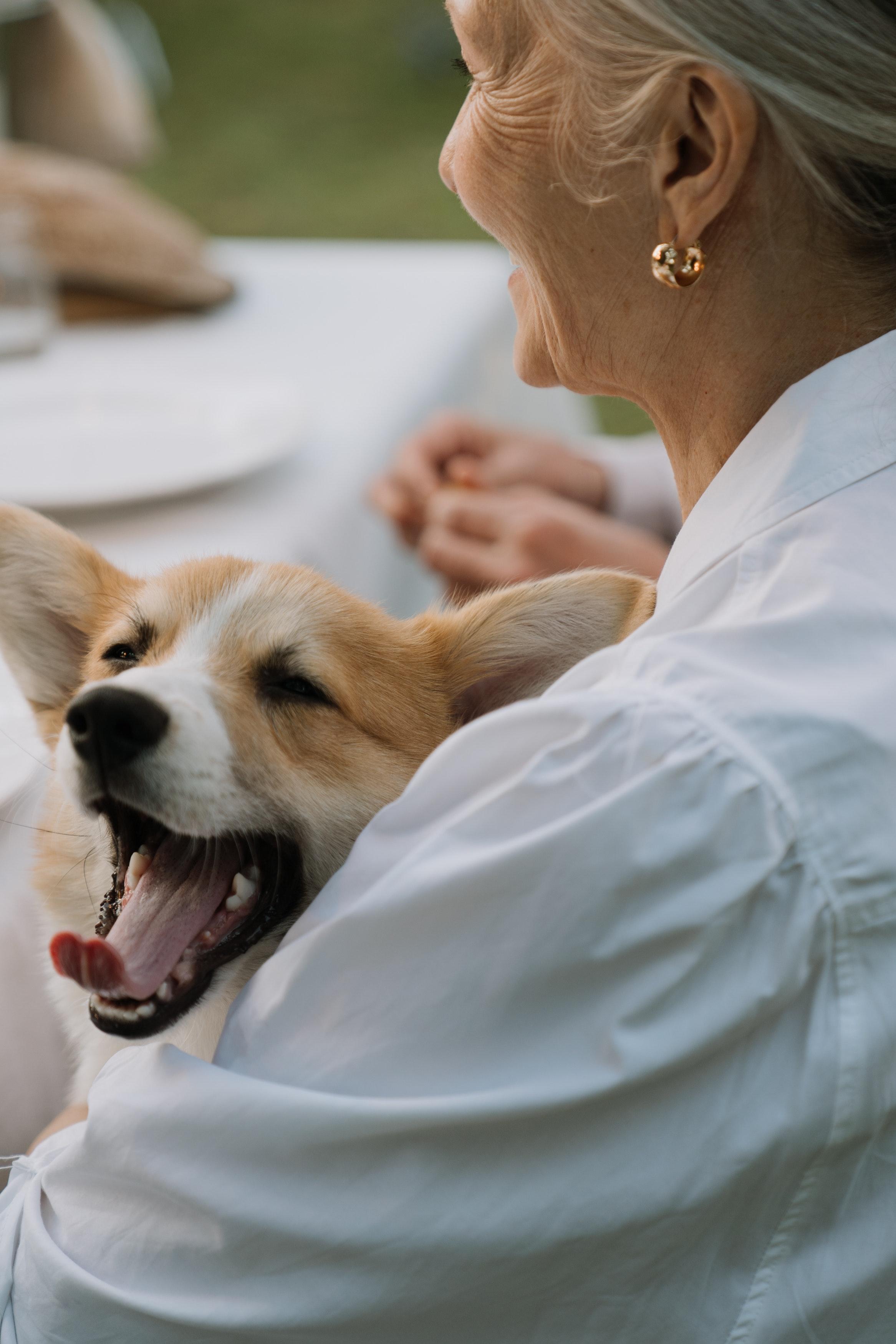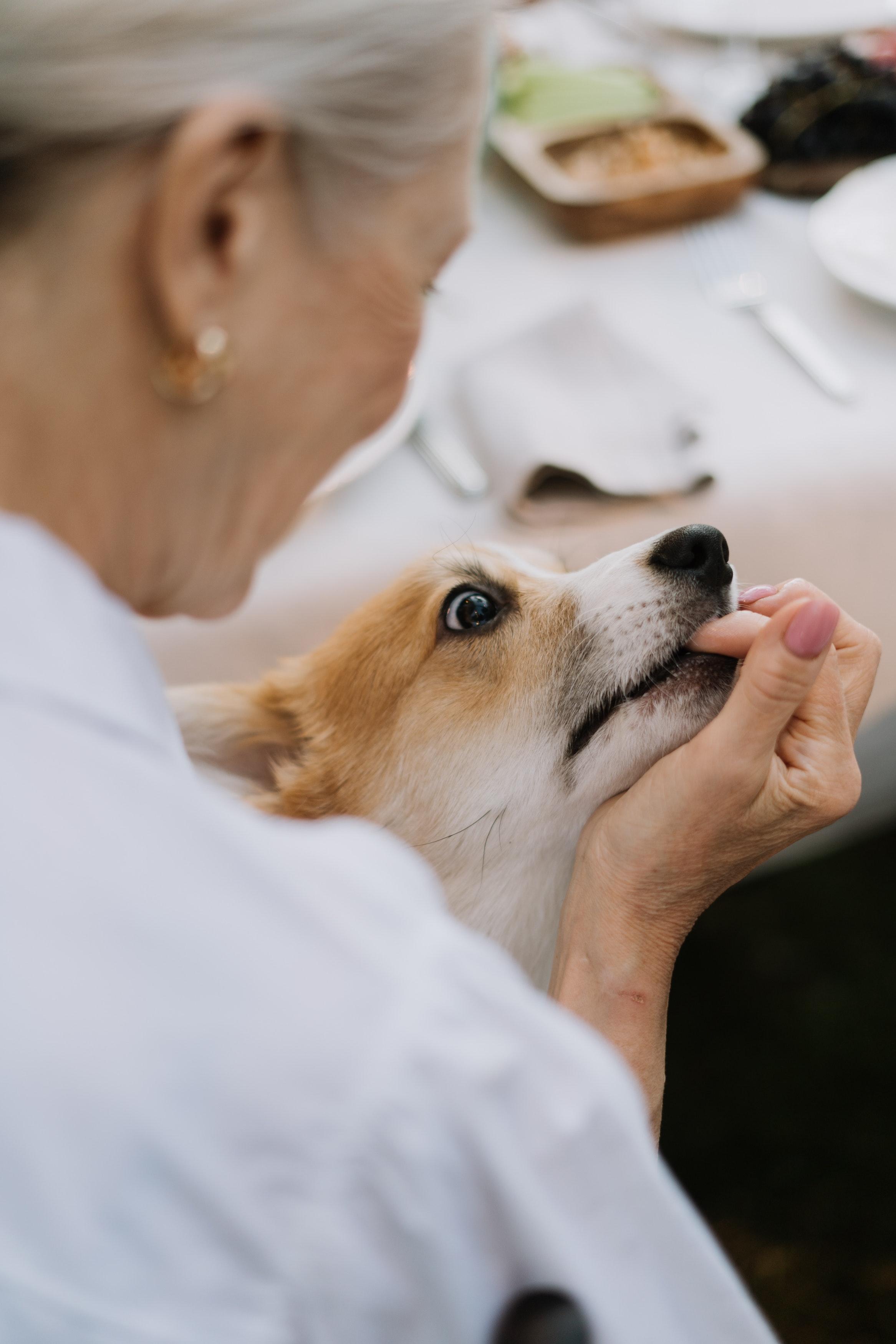As our furry friends age, their nutritional needs change, and it’s important for us as pet owners to provide them with the proper care and attention they deserve. One common question that arises is how often should a senior dog be fed? In this blog post, we will explore the factors to consider when determining a feeding schedule for your older canine companion.
Should older dogs be fed more often? Is it bad to feed a dog late at night? Is 4pm too early to feed a dog? These are questions that come up frequently, and the answers may vary depending on the specific needs of your senior dog. Additionally, we will dive into whether you should feed your senior dog once or twice a day, as well as what is considered a senior dog in terms of age.
Join us as we unravel the secrets of proper nutrition for senior dogs and discover the best feeding schedule, whether wet or dry food is more suitable, and what additional dietary requirements our older furry friends may have. Let’s ensure our senior dogs live their golden years in the best health possible!
How Often Should a Senior Dog Be Fed
As our furry friends enter their golden years, their dietary needs may change, requiring us to adjust their feeding schedule accordingly. So, how often should a senior dog be fed? Let’s dig into this important question and find out the ideal feeding routine for our aging companions.
Age and Individual Needs Count
When determining the frequency of your senior dog’s meals, it’s crucial to consider their age and individual needs. Just like humans, each dog is unique and may require a tailored approach. While there isn’t a one-size-fits-all answer, we can establish some guidelines to help create a beneficial feeding routine for our four-legged pals.
The Two-Meal Strategy
For many senior dogs, transitioning to two meals a day is often recommended. This approach helps avoid overwhelming their digestive systems by splitting their daily calorie intake into two balanced meals. It also allows for easier portion control, ensuring that your dog maintains a healthy weight.
The Importance of Consistency
Senior dogs thrive on consistency and routine. Establishing set meal times is beneficial not only for their digestion but also for their overall well-being. By sticking to a regular feeding schedule, you create a sense of structure and predictability, reducing stress and promoting a happier, healthier senior dog.
Adjusting Portion Sizes
As dogs age, their energy levels tend to decrease, reducing the amount of food they require. It’s important to adjust their portion sizes accordingly to prevent unhealthy weight gain. Consulting with your veterinarian can help you determine the appropriate quantity and type of food for your senior dog’s specific needs.
Keep an Eye on Weight and Body Condition
Regularly monitoring your senior dog’s weight and body condition is vital for their health. If you notice any significant fluctuations, it may be an indication that adjustments are necessary. Remember, a pudgy pup might be adorable, but excessive weight can lead to a variety of health issues, including joint problems and heart conditions.
Hydration Is Key
Apart from feeding, ensuring your senior dog is properly hydrated is equally important. Senior dogs may not have the same thirst drive as when they were younger, so it’s essential to always provide fresh water and monitor their water intake. If you suspect your furry friend is not drinking enough, consult your veterinarian for advice and potential solutions.
Treats and Extras in Moderation
Who doesn’t want to spoil their senior dog with tasty treats? While treats can be a delightful addition to their daily routine, it’s crucial to keep them in moderation. Senior dogs tend to have lower calorie requirements, so excessive treats can contribute to weight gain. Opt for healthy, low-calorie treats and be mindful of the overall balance of their diet.
In summary, the ideal feeding frequency for senior dogs often involves transitioning to two meals a day to support their changing dietary needs. Consistency, portion control, and adjusting to their individual requirements are key factors in ensuring their well-being. By managing their weight, monitoring hydration, and providing occasional treats in moderation, we can help our senior dogs enjoy their golden years to the fullest.
FAQ: How Often Should a Senior Dog Be Fed
Welcome to our comprehensive FAQ guide on feeding schedules for senior dogs. We understand that as a pet parent, you want the best for your furry friend, and nutrition plays a crucial role in their overall well-being. In this article, we’ll address common questions that dog owners have regarding the feeding frequency of senior dogs. So, let’s dive in!
Should Older Dogs Be Fed More Often
As dogs age, their activity levels tend to decrease, and their metabolic rate may slow down. Therefore, it is generally recommended to feed older dogs smaller, more frequent meals to support their metabolism and prevent digestive discomfort. Instead of one or two large meals, consider dividing their daily food portion into three or four smaller meals.
Is It Bad to Feed a Dog Late at Night
Feeding a dog too close to bedtime may disrupt their sleep, just like that late-night bowl of ice cream affects us humans. It’s best to avoid feeding your senior dog right before bedtime to allow for proper digestion and undisturbed sleep. Aim to feed them at least a couple of hours before bedtime.
Is 4pm Too Early to Feed a Dog
There’s no fixed time that is considered “too early” to feed a dog. However, it’s important to maintain a consistent schedule for your furry companion. If you’ve settled into a routine where you feed your senior dog around 4pm, that’s perfectly fine! The key is to find a schedule that works for both of you and stick to it.
Should I Feed My Senior Dog Once or Twice a Day
The frequency of feeding depends on various factors, such as your dog’s health, size, and individual needs. While some senior dogs may do well with two meals a day, others might benefit from smaller, more frequent meals. Consult with your veterinarian to determine the best feeding schedule for your furry friend.
How Often Should 12-Year-Old Dogs Eat
At 12 years old, your dog is considered a senior. As mentioned earlier, it’s generally recommended to feed senior dogs smaller, more frequent meals. Aim for three to four meals spread throughout the day to ensure they receive adequate nutrition without overwhelming their digestive system.
What Is the Best Feeding Schedule for Dogs
The best feeding schedule for dogs varies depending on their age, health, and lifestyle. However, a commonly recommended schedule for senior dogs is to provide them with three to four small meals at regular intervals throughout the day. This helps maintain their energy levels, supports digestion, and prevents hunger-related discomfort.
Is 14 Old for a Dog
Yes, 14 years old is considered old for a dog. By this age, most dogs have entered their senior years and will require special care, including a tailored feeding schedule. Considering their age-related changes, it’s crucial to provide them with a diet that meets their nutritional requirements and supports their overall health.
What Is Considered a Senior Dog
Dogs are generally considered seniors when they reach the age of 7 or 8, depending on their breed and size. However, larger breeds may age faster and be considered seniors as early as 5 or 6 years old. It’s always important to monitor your dog’s health and consult with your veterinarian to determine the best care for your senior companion.
Should I Feed My Senior Dog Wet or Dry Food
The choice between wet and dry food for your senior dog depends on various factors, such as their dental health, preferences, and specific dietary needs. Wet food can be more palatable for dogs with dental issues or a decreased sense of smell. On the other hand, dry food can help maintain dental health and provide necessary chewing exercise. Consult with your veterinarian to make an informed decision based on your dog’s individual requirements.
Is 16 Years Old for a Dog
Yes, 16 years old is quite a milestone for a dog! At this age, your furry friend deserves all the love and care you can provide. As they continue to age, it becomes even more crucial to meet their nutritional needs and adjust their feeding schedule accordingly. Regular veterinary check-ups and a balanced diet can help ensure they enjoy their golden years comfortably.
Do Senior Dogs Need Different Food
Senior dogs often have specific nutritional needs that differ from those of younger dogs. As dogs age, their metabolism, digestion, and overall health may change. Therefore, it’s important to choose a high-quality dog food specially formulated for seniors. These foods typically contain adjusted protein, fat, and fiber levels to support the aging process and help manage common health issues such as arthritis or weight management.
Why Is My Senior Dog Hungry All the Time
It’s not uncommon for senior dogs to experience an increase in appetite. However, excessive hunger could be a sign of an underlying health issue, such as diabetes. If you notice a significant change in your dog’s appetite or behavior, it’s important to consult with your veterinarian to rule out any medical conditions and determine the best course of action.
What Do Senior Dogs Need in Their Diet
Senior dogs benefit from a well-balanced diet that focuses on their specific nutritional requirements. Look for dog foods containing quality proteins, easily digestible ingredients, essential fatty acids, and joint-supporting additives such as glucosamine and chondroitin. Additionally, diets rich in antioxidants help support their immune system and overall well-being.
Do Senior Dogs Sleep More
Yes, senior dogs tend to sleep more than their younger counterparts. While the amount of sleep varies from dog to dog, you might notice your senior companion spending more time napping or resting. This is a normal part of the aging process as their energy levels decrease and their bodies require more rest.
Should Senior Dogs Be Fed Less
Senior dogs typically have lower energy requirements than younger dogs due to their decreased activity levels and metabolism. However, it’s important not to automatically assume they should be fed less. Instead, focus on providing them with a balanced diet that meets their specific nutritional needs and consult with your veterinarian to determine the appropriate portion sizes for your senior companion.
How Often Should I Feed My 12-Year-Old Dog
As mentioned earlier, a good guideline for feeding a 12-year-old dog is to offer three to four small meals throughout the day. By feeding them at regular intervals, you can provide them with the necessary nutrients while minimizing discomfort and supporting their overall health.
How Much Food Should a Senior Dog Eat a Day
The amount of food a senior dog should eat in a day depends on various factors, including their size, weight, activity level, and overall health. It’s crucial to feed them the appropriate portion size to avoid weight gain or loss. Consult with your veterinarian to determine the optimal daily food intake for your senior companion.
Are Eggs Good for Old Dogs
Yes, eggs can be a healthy addition to a senior dog’s diet when given in moderation. They are a great source of protein and can provide essential vitamins and minerals. However, it’s important to cook eggs thoroughly before feeding them to your dog to avoid the risk of salmonella contamination. Introduce eggs slowly and monitor your dog for any signs of allergies or digestive issues.
Final Thoughts
Feeding your senior dog the right way is essential for their overall health and well-being. By understanding their individual needs and consulting with your veterinarian, you can create a feeding schedule that suits their lifestyle and supports their nutritional requirements. Remember, a happy and healthy senior dog is a lifelong companion who deserves all the love and care you have to offer. So, let’s keep those tails wagging and food bowls full!

